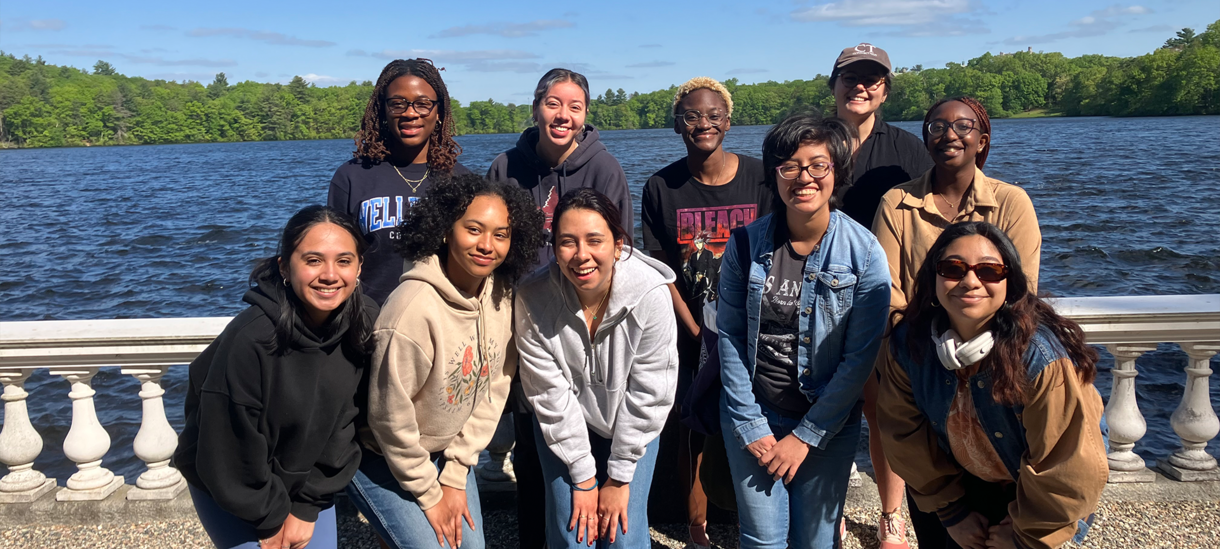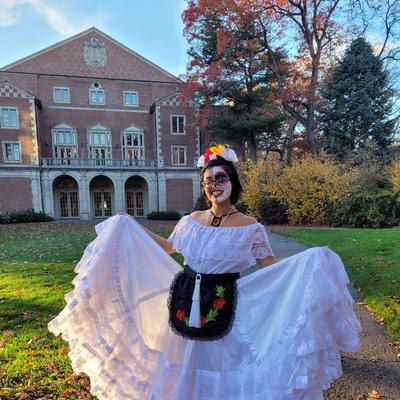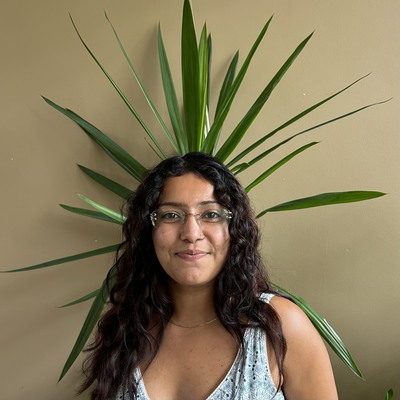
Wellesley College Mellon Fellows


Cecelia's research focuses on exploring the intersection between constructions of femininity and Mexican Regional music. She will be specifically researching how the careers and music by Selena Quintanilla Perez and Jenni Rivera contradict and perform expected expressions of gender throughout their life and in death.

Alexa’s current research works to uncover how horror video games as a medium for expressing Japan’s social and cultural attitudes created from World War 2 can be used to understand the role of horror video games globally. Resident Evil and Silent Hill are 2 franchises that allow for players to understand the contemporary social politics within Japan surrounding nuclear power and militarization due to the ability of horror as a genre to convey social ideals inseparable from trauma.

Angelica is a Senior from Phoenix, Arizona majoring in Anthropology with a socio-cultural focus. Her project focuses on the effects tourism has on the celebration of Dia de los Muertos or Day of the Dead in Oaxaca, Mexico. By learning about the stories of locals and tourists, her project explores themes of colonization and the efforts of local communities to preserve the traditions. Angelica is also a student assistant at the Suzy Newhouse Center for the Humanities.

Heather is a junior from the South Texas-Mexico border whose experience has fueled her research interests in examining the importance of language in establishing socioeconomic statuses in the United States through Spanish sociolinguistics via local, state, and federal legislature as well as day-to-day life on the border.


LJ's research is an intersection of American cultural studies and media studies, placing the contemporary phenomenon of virality and the inception of minstrelsy in conversation with another and highlighting how they have produced a feedback loop in the 21st century. Analyzing the production and distribution apparatuses of Blackface minstrelsy and sequential image social network sites (SNS), they embark on contributing to the scholastic archive of 2010-2020 cultural phenomena, specifically SNSs that emerged from 2013 to 2016: Vine, Dubsmash, Music.ly, and TikTok. Within this research, they focus on the notion of virality and how it has become an integral factor in the production and distribution apparatuses of SNSs, somehow motivating contemporary reproductions of Blackface and racial impersonation.

Kristal is a junior from Silver Spring, Maryland who’s current research project aims to analyze the treatment and societal reception of black maternal mental health with a focus on the ostracization of black parents within the structure of the for-profit American healthcare system, judicial court rulings, and general societal rhetoric. The research will also uncover how black caricatures such as the “mammy” along with the inception of the Obstetrics and Gynecology (OBGYN) field fueled nefarious ideas of black indestructibility that continue to harm black birthing persons whose journey’s with parenthood are not linear.

Karla's research focuses on community-based art projects and collectives led by contemporary Central American artists. She is particularly interested in how these artists use public art (i.e. murals) to preserve their culture while residing in the United States, and their collaboration with grassroots and nongovernmental organizations. Her work involves closely observing their coordination with organizers, learning from their methods, and documenting how art can foster community connections.

Grace is a Junior from Little Rock, Arkansas with a passion for environmental justice advocacy. Her research examines how colonial epistemologies have shaped and influenced the way a post-colonial society views and interacts with the natural world. Using the principles of moral philosophy as her foundation for this research, she wants to acknowledge and incorporate other, often ignored and undervalued, cultural conceptions and epistemologies of interacting with the natural world to bring attention to and provide solutions for the water crises occurring in several marginalized communities.

Shaela's research explores the spectacle of the marginalized body as it is upheld in contemporary art museums, primarily through video sculpture and interactive installations. They investigate how sensory techniques - such as texture, embodied design, and haptic (touch) technology, sustain a practice of colonial, unconsented touch on marginalized bodies. They are interested in analyzing this postcolonial era which explores engagement with museum objects and popularizes works that refine tactile aesthetic abilities.
